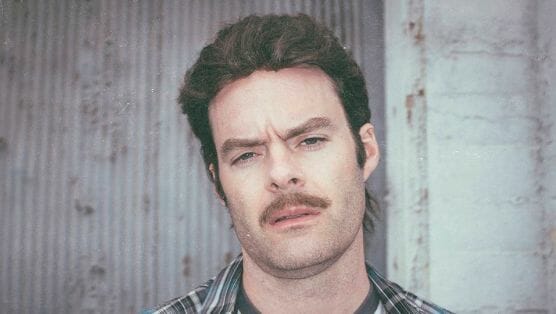Documentary Now : “The Eye Doesn’t Lie” (1.04)

Documentary Now’s fourth episode, “The Eye Doesn’t Lie,” parodies and parallels Errol Morris’ 1988 film, The Thin Blue Line. The episode and the feature film focus on a man unjustly imprisoned for a crime he didn’t commit. Despite Fred Armisen’s outstanding physical comedy in both facial expressions and mannerisms, the episode ultimately proves to be more sobering than side-splitting, indirectly indicting the American legal system for its fallibility (which ultimately is a good thing).
“The Eye Doesn’t Lie” investigates a Texas murder case in which jazz lover Don Lentile (Armisen) is imprisoned for the 1976 death of John Patrick Winslow, a sign spinner gunned down on the streets of San Antonio. (This is where the episode diverges from the original story as it was a Dallas police officer that was shot and killed.) Lentile is convicted thanks to shoddy police work and the testimony of another prisoner Robbie Wheadlan (Bill Hader), who just happened to be with Lentile on the night of the murder. Texas doesn’t like outsiders much, and Lentile’s brusque manner, funny speech and sometimes odd behavior doesn’t win any friends or favors with the police. The episode stresses that likeability and believability go a long way in the criminal justice system.
Despite the evidence pointing away from Lentile, the cops have it out for the weirdo jazz fan. They know local kid Robbie, so they use him as an informant and turn a blind eye to all his transgressions. When an eye witness comes forward to ID Robbie’s car—a “Jabroni” with the license plate I <3 PUSS driving away from the scene—the police ask him to re-think his description. One cop says, “The eyes don’t lie. If your memory’s confused, we can give it a little nudge.” So with the police’s help, the witness revises his statement. The car has become “beige Boca Raton” with the plate !Jazz!. We’ll give you one guess as to whom that car belongs.
-

-

-

-

-

-

-

-

-

-

-

-

-

-

-

-

-

-

-

-

-

-

-

-

-

-

-

-

-

-

-

-

-

-

-

-

-

-

-

-








































